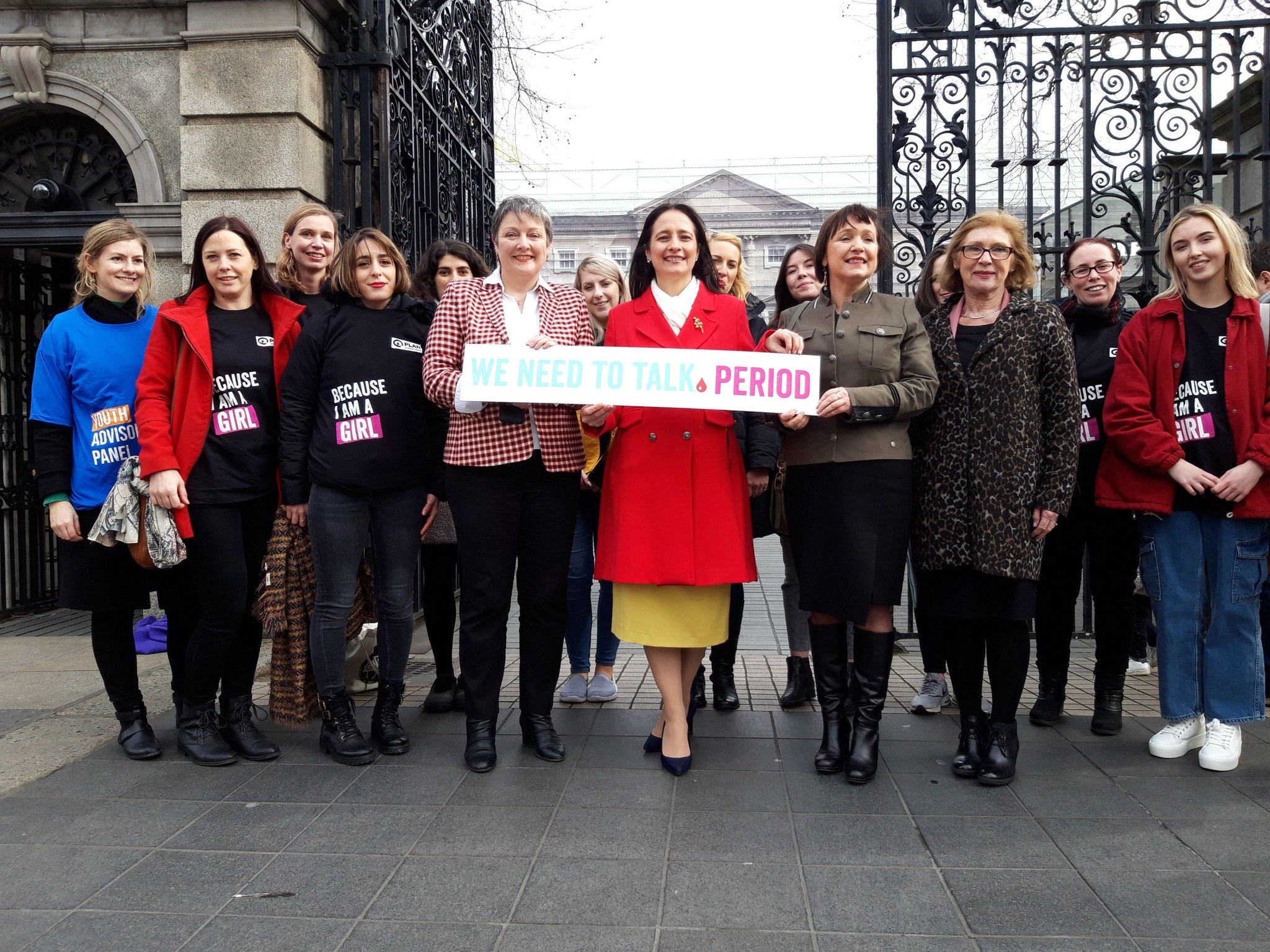An all-party motion to provide to provide free sanitary products in public buildings was passed in the Dáil on Wednesday. The measure will see sanitary products and menstrual information provided in universities, schools, direct provision centres, refuges, Garda stations, hospitals and prisons.
The motion, tabled by the Oireachtas parliamentary women’s caucus, is intended to tackle “period poverty” in Ireland.
Chair of the Oireachtas Women’s Parliamentary Caucus, Deputy Catherine Martin, described period poverty as a “very real issue” which has a negative impact on the “education, well being, and quality of life” for those who cannot afford sanitary products.
A recent study by Plan International Ireland found that over half of Irish girls have experienced financial difficulties in relation to sanitary products, and recommended that access and affordability of the products be improved.
In the Dáil debate on the proposal, the particular difficulties encountered by homeless women, teenage girls affected by poverty, and women asylum seekers living in direct provision were brought up by TDs from all sides of the House.
As well as providing free sanitary products, the proposal states an intention to work with other countries across the European Union to remove VAT on all sanitary products, including healthy and environmentally-friendly sanitary products such as cups and period-proof underwear.
This week, Trinity College Dublin Students’ Union (TCDSU) partnered with The Homeless Period Ireland, an Irish organisation which collects sanitary products for homeless people, as part of Women’s Week . Students could drop off pads, tampons or other sanitary products to donate to Homeless Period at stands across campus.
It is intended that the provision of free sanitary products will be accompanied by efforts to destigmatise menstruation by improving education on periods. This is expected to be implemented through the distribution of comprehensive, objective menstrual education information distributed through all public buildings. It is unclear as of yet whether this proposal will influence curricular reforms of health education at school-level. According to Plan International’s report, half of Irish girls did not find school helpful for providing information on their period.
The issue of stigmatisation was arose at debate, with Martin expressing her personal disappointment at the poor turnout from male TDs for the motion. However, Independent TD for Clare, Michael Harty, told the Chamber that the debate on period poverty was a “sign of the growing confidence and maturity of the Dáil”, saying that is was “a sign that we are moving on in Ireland, that we can discuss such issues in an open forum”.






